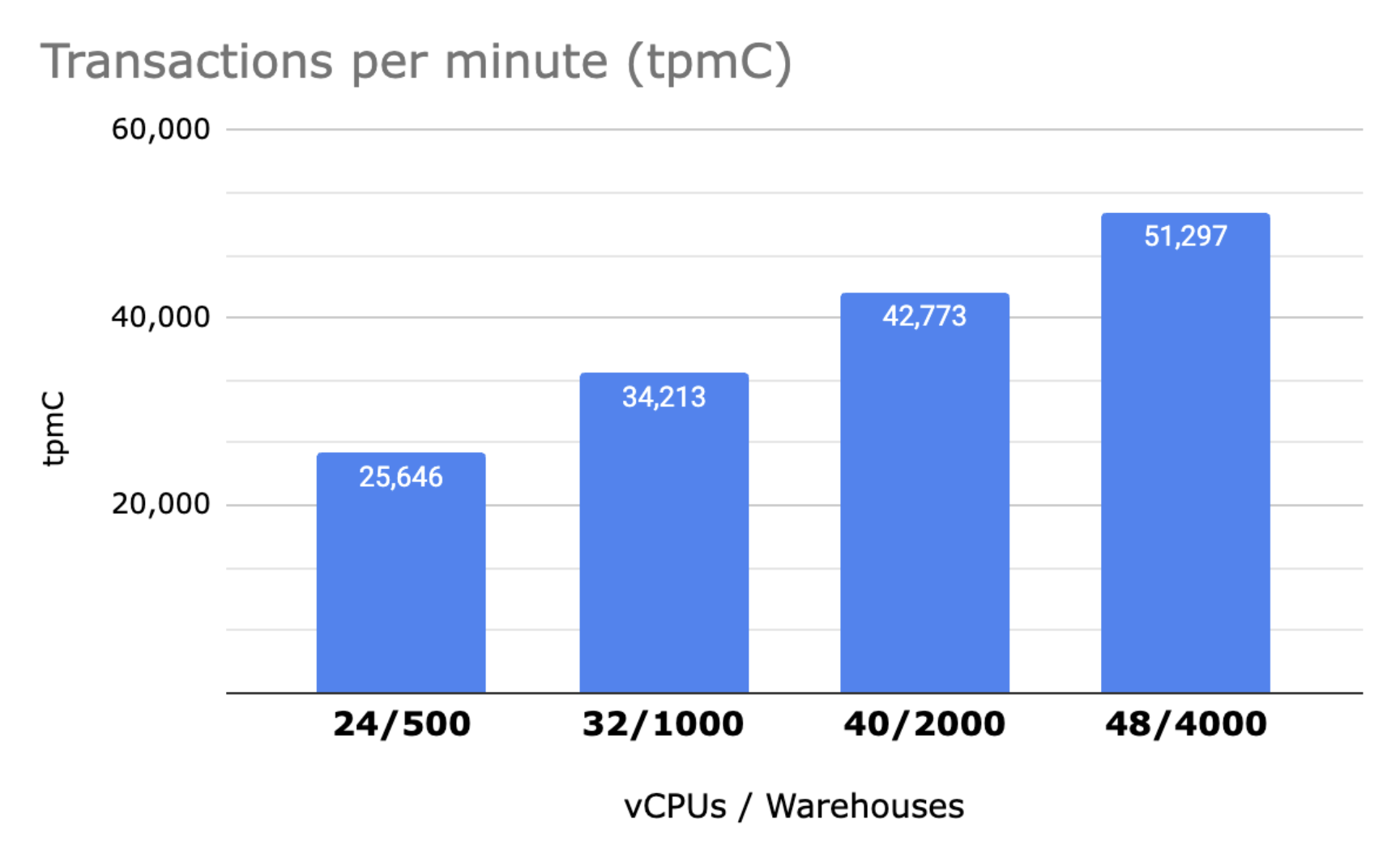TPC-C Benchmark on YugabyteDB
TPC-C is a popular online transaction processing benchmark that provides metrics you can use to evaluate the performance of YugabyteDB for concurrent transactions of different types and complexity, and which are either executed online or queued for deferred execution. Developed by the Transaction Processing Performance Council (TPC), it simulates a complete computing environment where a population of users execute transactions against a database.
Running the benchmark
Conducting an accurate TPC-C benchmark requires aligning your test environment with your production landscape. Begin by assessing your anticipated workload in terms of IOPS and projected data volume. These estimates will guide you in selecting an appropriate cluster configuration that closely mirrors your operational requirements.
After you've identified a cluster specification that matches your needs, apply the TPC-C workload recommended for that particular setup. The goal is to validate that the cluster can sustain the expected transaction throughput—measured in tpmC with a high degree of efficiency, typically exceeding 99.5%. This high-efficiency rate ensures that the cluster meets the benchmark's demands with minimal resource overhead, indicating its readiness to handle your real-world, high-volume transactional workloads.
Scale out
YugabyteDB exhibits exemplary scalability under the TPC-C workload, demonstrating a linear growth in performance as the cluster expands. The accompanying graph illustrates this linear scalability, showing how YugabyteDB's transaction throughput—quantified in tpmC increases in direct proportion to the number of nodes added to the cluster.

High scale workloads
YugabyteDB's robust performance in the TPC-C benchmark, particularly when scaled to a high number of warehouses, serves as a compelling testament to its prowess in handling high-volume transaction processing workloads. By excelling in this industry-standard test, which simulates complex, concurrent transactions across a vast, distributed dataset, YugabyteDB has effectively demonstrated its ability to manage the intense demands of large-scale OLTP environments.
Max scale tested
In our testing, YugabyteDB was able to process 1M tpmC with 150,000 warehouses at an efficiency of 99.8% on an RF3 cluster of 75 c5d.12xlarge machines with a total data size of 50TB.
| Warehouses | TPMC | Efficiency(%) | Nodes | Connections | New Order Latency | Machine Type (vCPUs) |
|---|---|---|---|---|---|---|
| 150,000 | 1M | 99.30 | 75 | 9000 | 123.33 ms | c5d.12xlarge (48) |